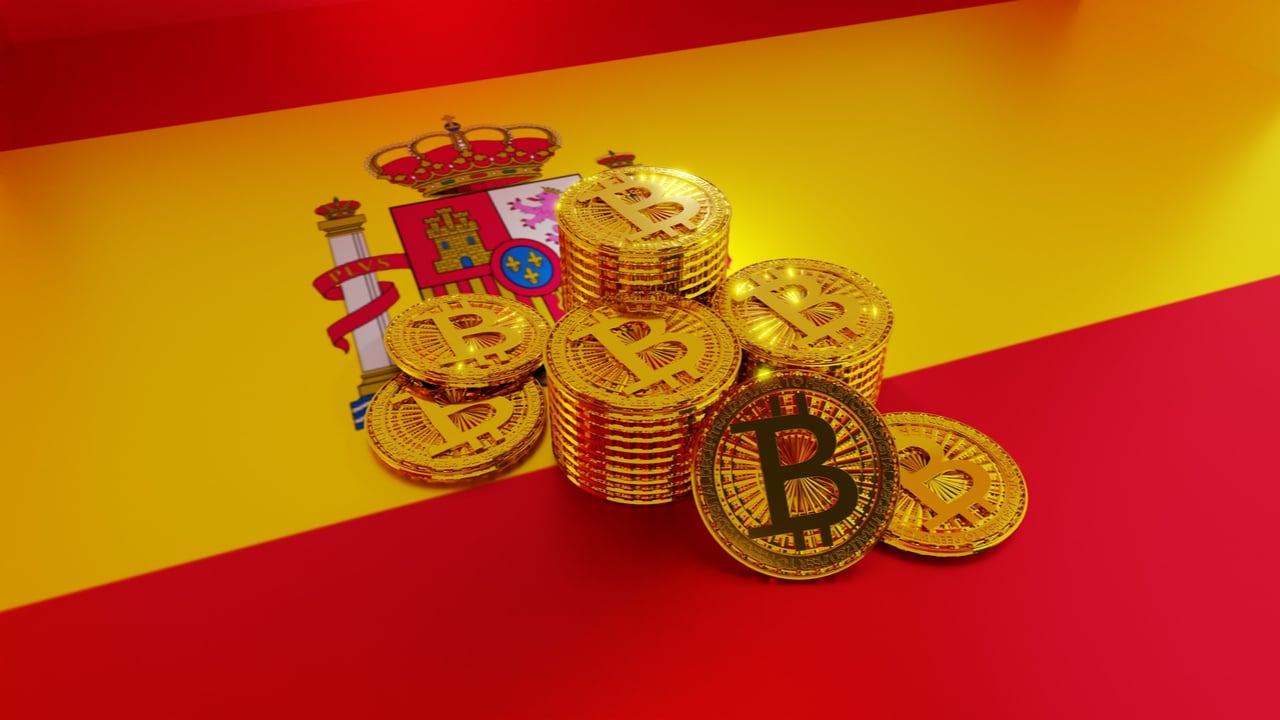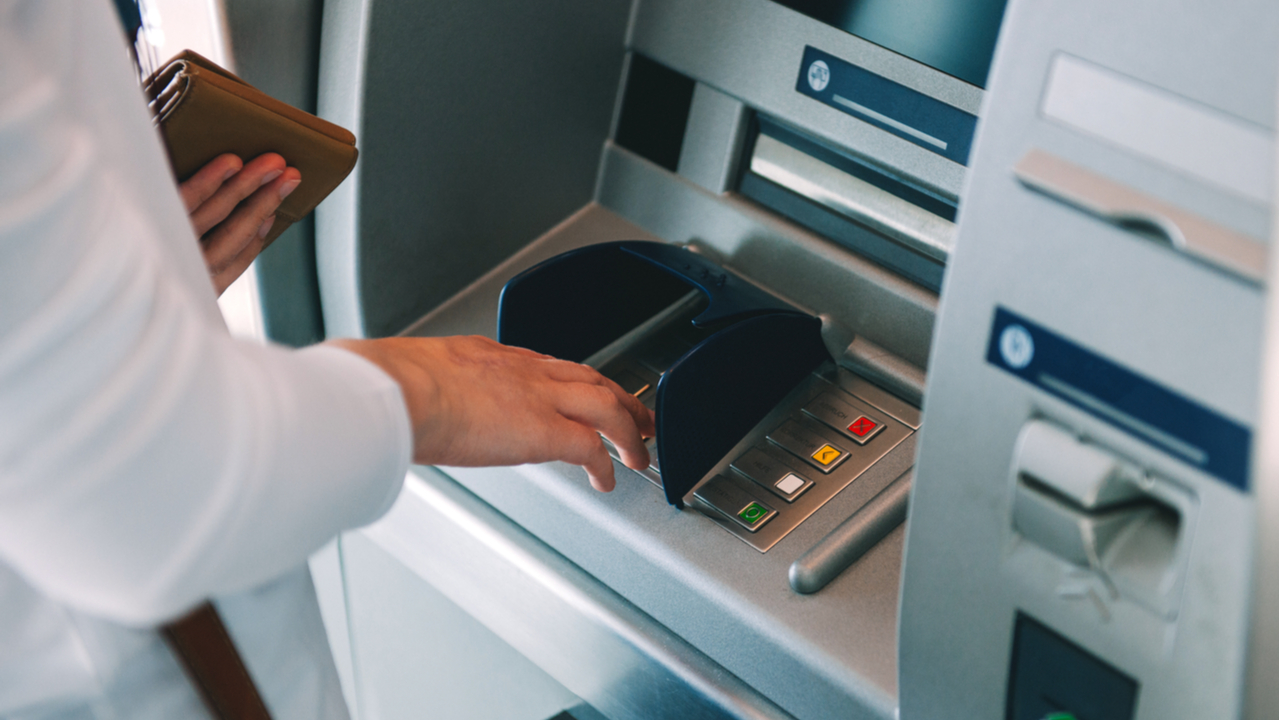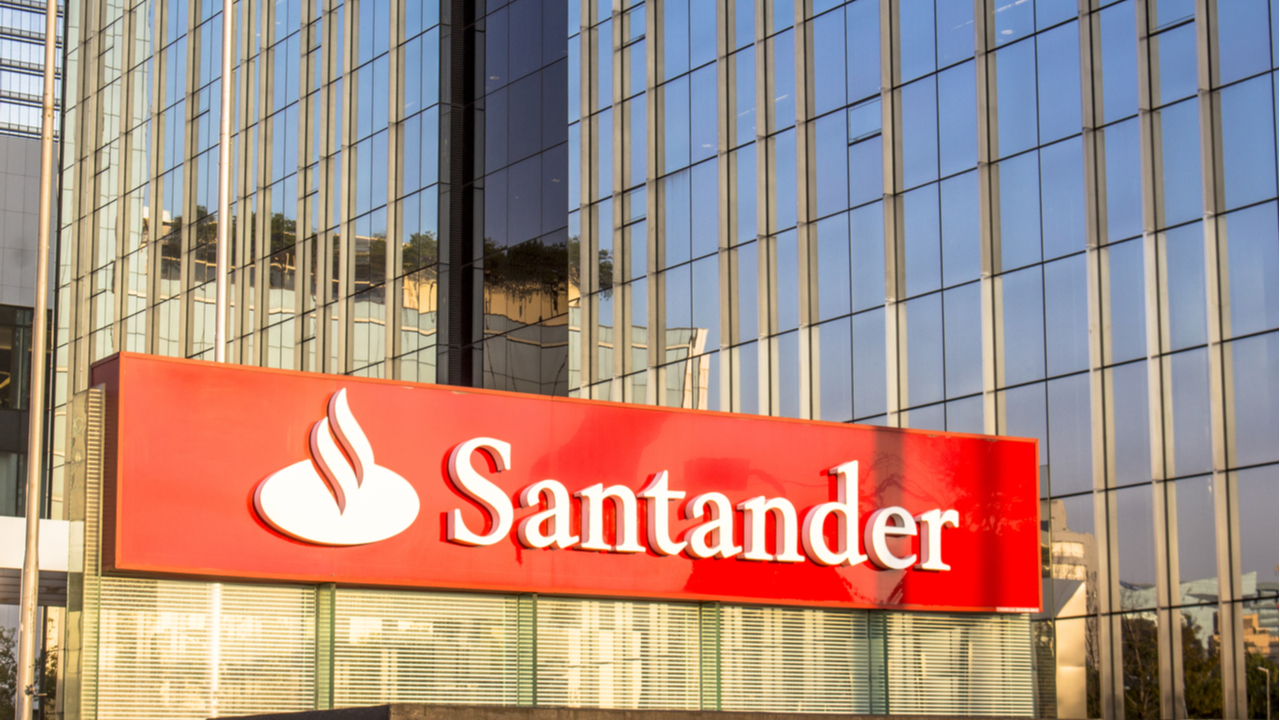 Revolut, a leading fintech platform and neobank, has received a special banking license to operate in Spain. User deposits are now insured up to €100K, with the coverage being provided by Deposit and Investment Insurance, a Lithuanian state company. The company, which now has over 800,000 customers in Spain, expects to grow its userbase with […]
Revolut, a leading fintech platform and neobank, has received a special banking license to operate in Spain. User deposits are now insured up to €100K, with the coverage being provided by Deposit and Investment Insurance, a Lithuanian state company. The company, which now has over 800,000 customers in Spain, expects to grow its userbase with […]
As the Bitcoin mining industry matures, it will seek stable political environments and stable energy sources.
Deputy for the Spanish Ciudadanos political party María Muñoz has proposed a bill to make Spain a Bitcoin mining hotspot following the internet shutdown that caused a mining outage in Kazakhstan.
The lawyer and economist Muñoz was steadfast in her support of Spain as a Bitcoin (BTC) destination, in a tweet on Friday:
“The protests in Kazakhstan have repercussions all around the world but also for Bitcoin. We propose that Spain positions itself as a safe destination for investments in cryptocurrencies to develop a flexible, efficient and safe sector.”
A two-page open letter accompanied the tweet directed at the Spanish Congress of Deputies. First, Muñoz highlighted the significance of the protests and the government’s response which used “all the strength of the police and the army,” before the government switched off the internet to the largest Central Asian economy.
She cited a Cambridge Centre for Alternative Finance study that put Kazakhstan as the second-largest Bitcoin miner worldwide, contributing an estimated 20% of the hash rate in the second half of 2021. The government’s decision to effectively pull the rug out from under Kazakhstan’s Bitcoin miners caused the hash rate to plummet a reported 13.4%.
These events inspired pertinent questions for the pro-Bitcoin lawmaker:
A proven proponent for the Bitcoin network, her party Ciudadanos, or “Citizens,” proposed a national strategy on cryptocurrencies in October last year. Her party seeks to position Spain as a pole for investments into cryptocurrencies from the European Union and the world — and Bitcoin mining could be the catalyst.
As Bitcoin hash rate fluctuations have shown time and again, mining infrastructure is not geographically restricted. China’s mining ban, for example, was to the benefit of Kazakhstan and Kosovo.
Alan Konevsky, chief legal officer at PrimeBlock, explained last year's mining changes to Cointelegraph: “Mining companies including those that relocated after the China regulatory changes, set up in countries like Kazakhstan and Kosovo because the cost of electricity is much cheaper than in North America.”
This was shown in Kazakhstan’s growing hash rate in 2021. However, in a premonition to what could take place in Spain, Konevsky goes on to explain:
“If mining becomes a complete non-starter in these countries, we could see miners relocate. This industry is mobile, to a point — but as it matures it requires stability, including stable political climate and stable inputs, including energy.”
Muñoz hopes that Spain harbors these Bitcoin-friendly factors. However, one of BTC's biggest headwinds may be political. Her tweet inspired ridicule from rival Green party member Ernest Urtasun, a European Parliament member.
Labeling her proposal a “bad joke” in a tweet, he said BTC mining is “an environmental aberration.” Muñoz and her Citizens party clearly have their work cut out.
 Maria Muñoz, a Spanish deputy from the country’s Congress, wants to position its country as a reliable alternative to miners that are facing a dire situation in Kazakhstan, after their internet service was suspended, affecting their operative capacity. Muñoz sent a letter to the congress, inquiring about the possible actions that Spain might take to […]
Maria Muñoz, a Spanish deputy from the country’s Congress, wants to position its country as a reliable alternative to miners that are facing a dire situation in Kazakhstan, after their internet service was suspended, affecting their operative capacity. Muñoz sent a letter to the congress, inquiring about the possible actions that Spain might take to […]
The MariCoin project was among 10 projects chosen for the Algorand Foundation accelerator program in November 2021.
Spanish LGBT-related token MariCoin (MCOIN) has responded to the community following skepticism around the project’s concept and goals.
Some had even criticized the project for its name, which played on a homophobic slur in Spanish. But according to key people in the project, they have simply misunderstood.
MariCoin CEO Francisco Alvarez told Cointelegraph that the project’s name is about “turning an insult into a fortress,” referring to peculiarities of tackling homophobic language as the very word word “gay” is still being used as an insult in some communities.
“In Spain it is very common for members of the gay community to call themselves ‘Maricón,’ so Juan, an active member of the community, thought MariCoin was a fantastic name for a cryptocurrency that would unite the whole community,” Alvarez said.
The CEO noted that the MariCoin project has “found a generalized acceptance” of over 90% in other Spanish-speaking countries like Argentina, Venezuela, Cuba, Mexico, Uruguay, Ecuador, and others. “Although we must work on that other 10% that does not share our vision,” he noted.
According to MariCoin co-founder and president Juan Belmonte, the project expects to list its Algorand-based token on crypto exchanges supporting the Algorand blockchain on Jan. 31.
“We have been in talks since September 2021, as we have announced, to list on Binance. Our CTO is working on the white paper and we will have the first version ready next week,” Belmonte told Cointelegraph.
He also noted that MariCoin has closed their waiting list at 10,000 “Maricoiners,” as committed in their roadmap. “Due to the avalanche of mails, we have had to open a second list to reserve the coin at the starting price of $0.025, starting next January 31,” the executive added. Some people in the community previously were skeptical about MariCoin’s waiting list for investing via Google Forms.
Related: New LGBTQ token aims for equity but raises red flags with community
Belmonte also mentioned that MariCoin was selected for the Algorand Foundation accelerator program in Miami last year, with support from blockchain investment firm Borderless Capital. Apart from MariCoin, the accelerator also selected 9 other startups including Latin American digital bank NeoMoon, blockchain game Alchemon, nonfungible token platform Dartroom, and others.
The Algorand Foundation and Borderless Capital did not immediately respond to Cointelegraph’s request for comment.

While sporting a questionable name, the coin project says it wants to enable a “social and ethical” payment method.
The cryptocurrency community has raised concerns about Maricoin, a new token supposedly related to the LGBT+ community, with some people even suspecting the project to be a scam.
Launched in December 2021, Maricoin promises to enable a “social, ethical, transparent and transversal means of payment” targeting the global “pink economy,” which is estimated to amount to trillions of dollars.
One might question Maricoin’s ethics though, as its name is a portmanteau that plays on a Spanish slur for homosexuals.
According to the project’s website, Maricoin runs on the Algorand blockchain, with creators planning to list the token on several crypto exchanges in 2022.
The project was reportedly founded in Madrid by local hairdresser and entrepreneur Juan Belmonte, who said that the new token is designed to help the community profit by providing a new payment method for LGBT-friendly businesses worldwide.
According to CEO Francisco Alvarez, as many as 8,000 people were already on a waiting list to buy Maricoin as of early January.
Despite the token being widely promoted as the “first coin created by and for the LGBT+ community” on many mainstream media channels, Maricoin is not quite the first cryptocurrency project related to the LGBT+ community. As previously reported by Cointelegraph, there are a number of LGBT-related tokens and initiatives, including the LGBT token, which was launched back in 2018.
Several industry observers have expressed skepticism over Maricoin, with some even alleging that the initiative could be a scam.
“It’s not a coin, it’s a token, clearly a scam to catch fools who want to make easy money with crypto. Their website is poorly made, ugly and doesn’t have a single tech line about how this crypto will work. Not a single whitepaper and their waiting-list form is a damn Google Doc,” one Redditor argued.
Related: Beware of sophisticated scams and rug pulls, as thugs target crypto users
Justin Ehrenhofer, vice president of operations at crypto wallet service Cake Wallet, said, “This 100% feels like a scam.” He noted that the Reuters article on Maricoin didn’t include much skepticism on the project:
This 100% feels like a scam. You need to FILL OUT A GOOGLE FORM to indicate how much you want to "invest" in "MariCoin"? Yet @enriqueanarte @TRF publishes this likely scam, without much skepticism. *Maybe* everyone involved is oblivious, but this appears to be a textbook scam :( https://t.co/3TY4NfyDgQ pic.twitter.com/j1ZQaZea8G
— Justin Ehrenhofer ️ (@JEhrenhofer) January 4, 2022
Maricoin did not immediately respond to Cointelegraph’s request for comment. This article will be updated pending any new information.
 The number of ATMs in Spain has been progressively shrinking to levels the country saw in the year 2002. Reports from local media suggest these actions have been taken to reduce costs and to push payment and operation digitalization in the sector. The highest number of ATMs was registered in 2008 when there were 61,714 […]
The number of ATMs in Spain has been progressively shrinking to levels the country saw in the year 2002. Reports from local media suggest these actions have been taken to reduce costs and to push payment and operation digitalization in the sector. The highest number of ATMs was registered in 2008 when there were 61,714 […]
A Binance promotion post by soccer legend Andres Iniesta has so far amassed over 270,000 likes on Instagram.
A major financial regulator in Spain has put out a warning regarding soccer star Andres Iniesta for promoting major cryptocurrency exchange Binance.
Iniesta, a prolific midfielder who has played for Barcelona and the Spanish national team, was promoting Binance on his social media profiles on Instagram and Twitter.
On Nov. 24, Iniesta posted several pictures of him next to a laptop showing the Binance website on the screen as well as holding a smartphone reflecting several major crypto markets, including Bitcoin (BTC) and Binance Coin (BNB).
Hola,@andresiniesta8, los criptoactivos, al ser productos no regulados, tienen algunos riesgos relevantes. Es recomendable leer el comunicado de@CNMV_MEDIOS del 9/2/2021 https://t.co/SWRF73xEJj e informarse a fondo antes de invertir en ellos o de recomendar a otros que lo hagan
— CNMV (@CNMV_MEDIOS) November 24, 2021
At the time of writing, Iniesta has over 38 million subscribers on Instagram and more than 25 million followers on Twitter. The Instagram post has amassed over 270,000 likes at the time of publishing.
Spain’s securities market regulator, the National Securities Market Commission (CNMV), took to Twitter about 12 hours after Iniesta published the post to warn the player about crypto investment risks.
Related: Post Malone features BAYC NFTs in new music video with The Weeknd
Citing its regulatory statement from February 2021, the CNMV stressed that investors should be properly informed about crypto and its risks before investing and making financial advice. “Hi Andres Iniesta, cryptoassets carry some significant risks due to being unregulated products,” CNMV wrote.
It appears to be unclear whether Iniesta was offered any retainer for promoting Binance. Cointelegraph has reached out to the soccer player via contacts on Iniesta’s official website and will update this story pending new information.
 Santander, a leading financial institution in Spain, is preparing to offer a Bitcoin ETF to its customers in the country. This, while Spanish asset managers have been largely reluctant to embrace crypto products as part of their investment portfolio offerings to customers. Santander Bitcoin ETF in Preparation Santander will be giving the finishing touches to […]
Santander, a leading financial institution in Spain, is preparing to offer a Bitcoin ETF to its customers in the country. This, while Spanish asset managers have been largely reluctant to embrace crypto products as part of their investment portfolio offerings to customers. Santander Bitcoin ETF in Preparation Santander will be giving the finishing touches to […]
Banco de Espana wants to assess the influence that digitalization has on financial services.
Digital currency plans by Spanish banks must now be reported according to sources at the Banco de Espana, which claimed that the central bank wants to examine the effect digitalization is having on financial services.
The Bank of Spain has been quiet for years on the subject of digital currencies. However, this year, it’s stepping up and asserting itself. After establishing a digital currency service providers’ registry, it’s moving on to the banks.
According to a report from Spain’s El País, the Banco de Espana is now on the lookout for additional information from financial organizations dealing with digital money.
The purpose of the research is to examine the effect that digitalization is having on financial services, not to prohibit or advocate digital currencies. The central bank is calling on commercial banks to disclose their ties with digital asset service providers, stakes in them, and any other exposure they may have to cryptocurrencies.
Banks that want to launch or offer custody for existing cryptocurrencies in the next three years must also detail such projects.
The latest development arrives as leading banks in Spain begin to embrace digital currencies. Banco Santander is the country’s largest bank, and it has stated that it is working toward a cryptocurrency exchange-traded fund. Other financial institutions are also at various stages in their digital asset initiatives, such as BBVA and CaixaBank.
As reported, Banco Santander and four top Spanish banks completed a proof-of-concept for payment transfers utilizing smart contracts. Banco Santander also reportedly redeemed its blockchain-based bond in 2019.

All individuals and institutions in the country, including banks, will have to sign up using the new AML registry from the Bank of Spain.
The central bank of Spain is introducing new registration guidelines for local virtual currency service providers, or VASPs, including banking institutions.
The Bank of Spain has issued instructions on VASP registration for Anti-Money Laundering, or AML, purposes, requiring institutions to submit their registration requests through an electronic registry, Cointelegraph en Español reported Oct. 25.
Issuing the guidelines on Oct. 19, the Spanish central bank noted that the obligation to sign up in the registry applies to “all individuals and institutions providing virtual currency exchange services” like cryptocurrency trading and custody services.
The regulator stressed that VASPs will have to register “regardless of whether they are also registered in other administrative records in the Bank of Spain or other related authorities.”
According to the official statement, institutions are required to proceed with the registration even if their end customers are not located in Spain. Individuals are also recommended to use the electronic registry form but may also proceed via other channels like mail, the central bank said.
The instructions specifically require both legal entities and individuals to issue reports on their measures for preventing illicit activity like money laundering and terrorism financing, including certain information on their clients.
Related: Brazil aims to tighten penalties for crypto-related financial crimes
According to the statement, the Bank of Spain will analyze data and evaluate potential risks while taking into account VASPs’ types of clients, operated countries, products, business relationship purposes, operated volumes and others.
According to the local news agency El País, the Bank of Spain initially announced plans to establish AML procedures for VASPs in June 2021. In August, Spanish lawmakers backed a legal initiative to legalize the usage of cryptocurrency for mortgage and insurance purposes.